Shells and Prayers: Rediscovering the Sacred on a Remote Beach
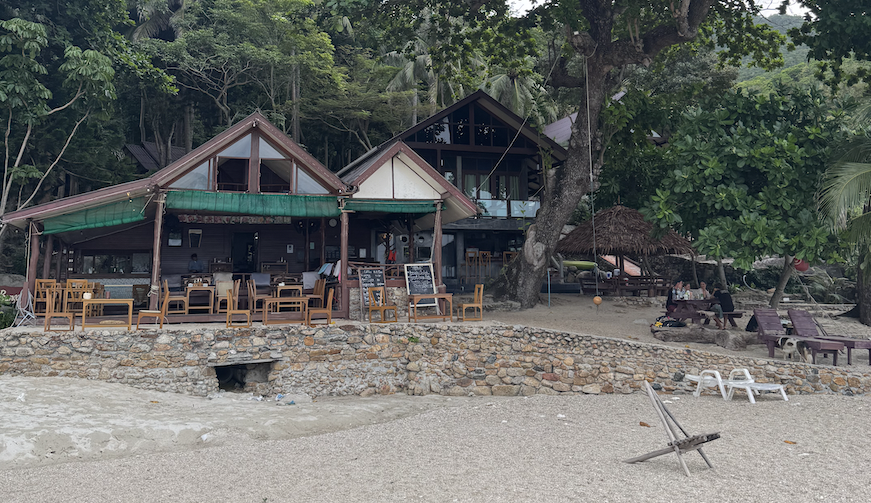
Last weekend, I spent the night at Bottle Beach with some friends. Bottle Beach is a remote beach on a distant Thai island, accessible only by boat or hiking through dense jungle. It was my first time visiting this secluded beach, so I chose to hike with a German friend, something of a local rite of passage on this island. We wound through thick, humid green, the air alive with the sounds of birds and insects. The path was rugged and poorly marked but the anticipation of reaching a peaceful beach kept us moving forward. Along the way, we talked about our lives—dating, the families and communities we want to create, and how to care for our health, bodies and minds in a world that often seems to be spinning out of control. At one point, we paused in a clearing, sitting in silence for fifteen minutes, taking in the mountainous jungle scene in a kind of meditative prayer.
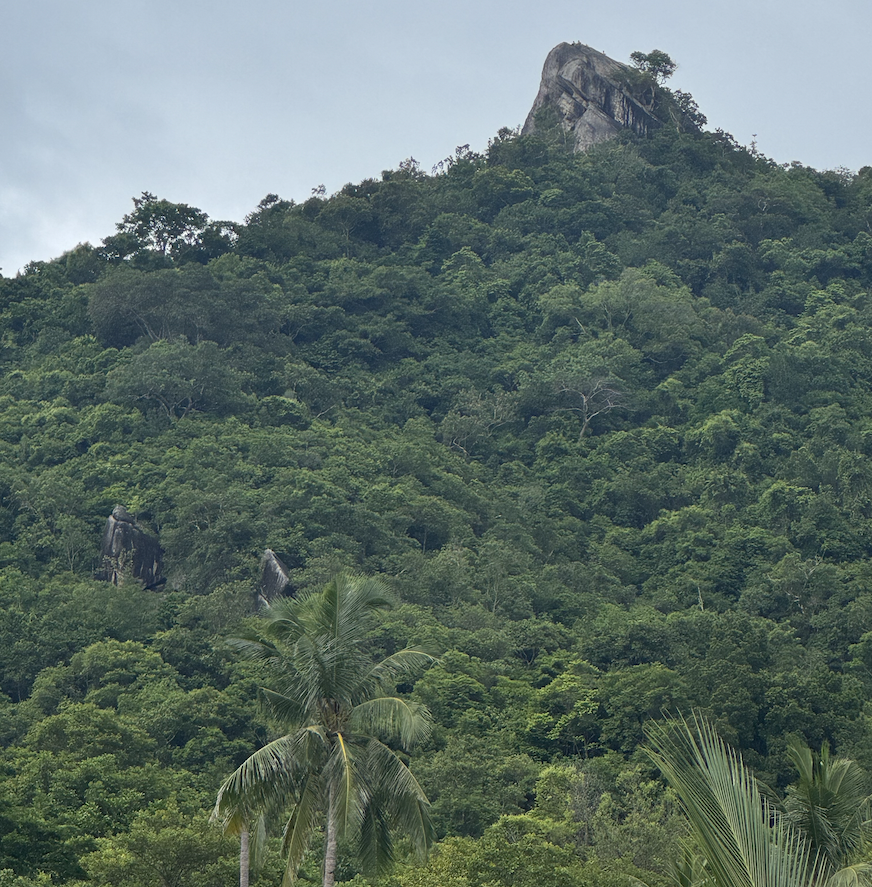
When we emerged from the trees, the wild, beautiful beach opened before us and we joined our diverse group of friends who had arrived by boat: German, Brazilian, French, English, Romanian, Russian, Hungarian, and Israeli. The mix of backgrounds and languages felt like a living tapestry, each person bringing their own stories, humor, and perspective. For this weekend at least, we were leaving behind the noise and division of the outside world and spending our time getting to know each other, and our stories and perspectives, intimately.
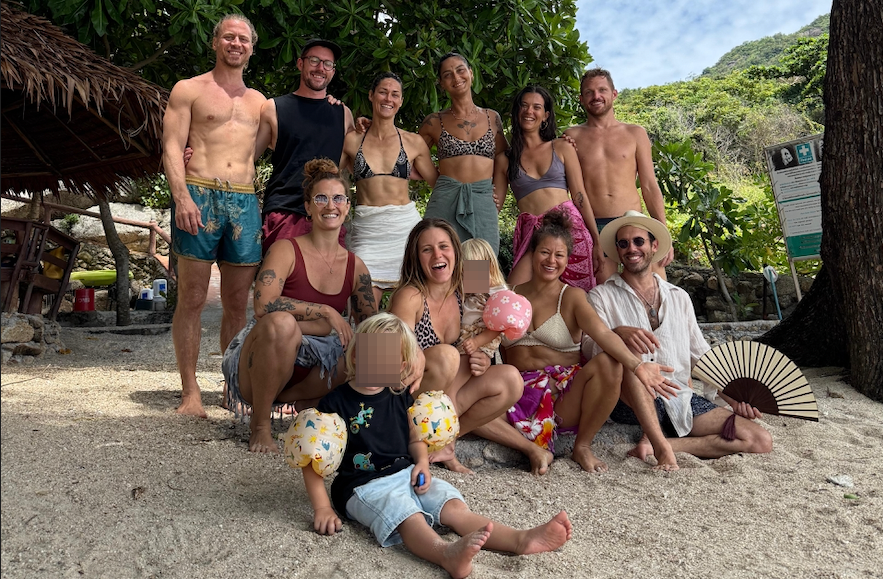
Bottle Beach is a microcosm of a peaceful life, almost frozen in time. Nothing here is mass-produced. Everything, from furniture to decorations, is handmade from driftwood, shells, and glass bottles washed up by the tide. There’s a small cactus garden collected and tended by the owners of a beach restaurant, a small pavilion for Thai massage, swings built from sticks and old tires, and bookshelves filled with dusty and worn paperback books in various languages left behind by travelers from all over the world. The restaurants and bungalows are basic but full of character, each one reflecting the care and personality of the people who built them. It’s a place where you can feel the love and intention in every detail, where nothing is shiny or artificial, but everything is real.
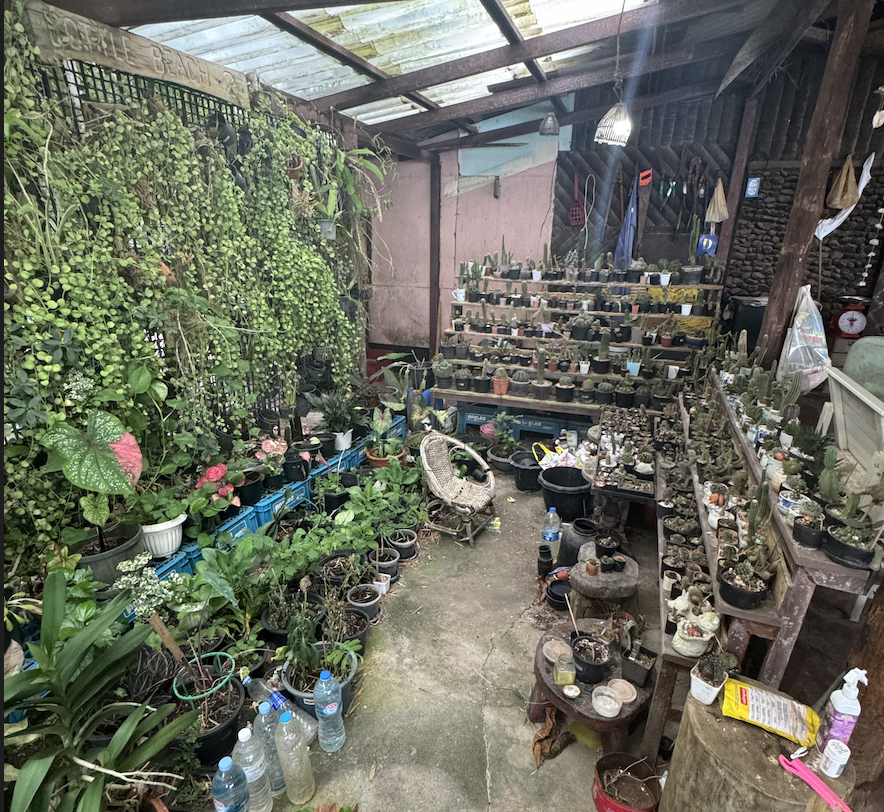
In the late afternoon, we gathered on the sand, eating fresh local fish caught by the Thai people living at the beach, sharing stories, and laughing as the afternoon sun slowly descended. The conversation drifted from culture to humor to the strange and beautiful ways our lives brought us together on this beach at the edge of the world. There was a sense of freedom and intimacy from being far from the routines and expectations of daily life.
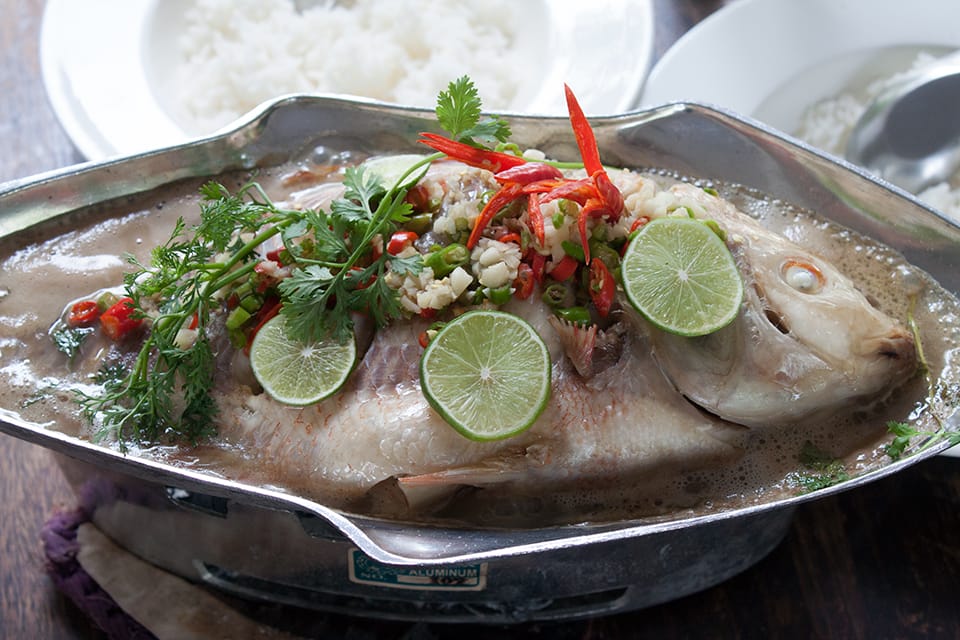
I took a long walk on the beach alone, the setting sun painted the sky as I explored, collecting shells and driftwood. My mind wandered to the headlines: unrest in Los Angeles and around the US, destruction in Gaza and Ukraine, and escalating war in Israel and Iran. I felt the weight of it all—helpless, heartbroken, and frozen by the global crisis. I also felt deep fear about my own security, not having an income for six months, and uncertainty about how I’ll survive if the world falls apart. And I felt alone—my family’s implicit support for Trump and the Republican party deepened my feeling of alienation and anger.
The day before, I had expressed my distress to a Ukrainian woman, a close friend who lives on this island. She's lost so much and has very little. "I don't know what I'll do if I run out of money," I said. "You can live with me," she replied, "I'll feed you." It was a deep expression of love that reminded me of the kinds of things Jesus did: feeding people in need, even those from other countries and ethnicities who he had no obligation to help. That was the Jesus I was raised with. How easily US Christians have forgotten that simple act of loving their neighbors!
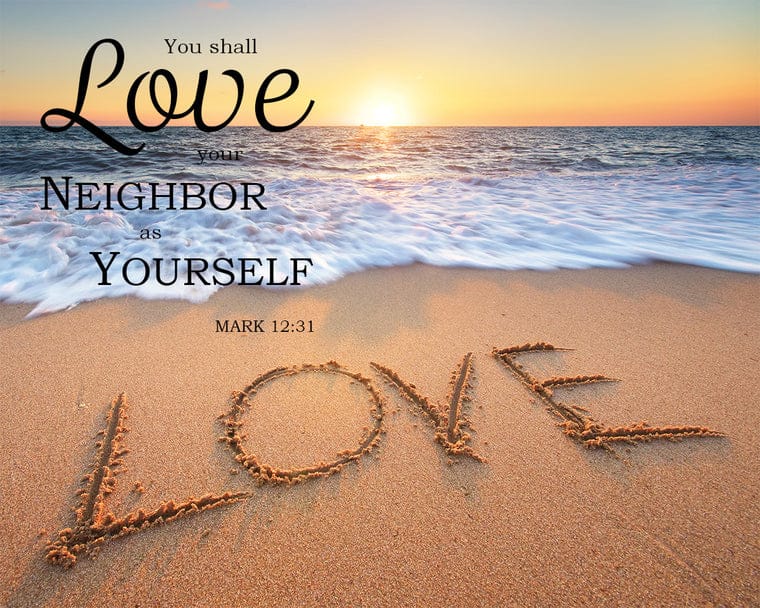
I haven't prayed in 13 years. My experience with the Christian religion, being out of touch with the divinity that they profess, closed my heart to it. In these past few months, I've felt that I have nothing left, like an empty shell. Nothing other than the present moment, the fleeting physical world around me, and the people with me on the journey. And I've begun to pray again. Not these out loud supplications asking God to do what I'm unwilling to do myself that are so popular in churches, but rather meeting each moment in reverent meditation on the divinity present in all things. I've been regularly visiting a temple, praying, chanting mantras, and singing songs of devotion to the divinity in all things. Walking on the beach, I was in a constant state of prayer, in awe of the miracle of life, and gratitude for the present moment and the love surrounding me.
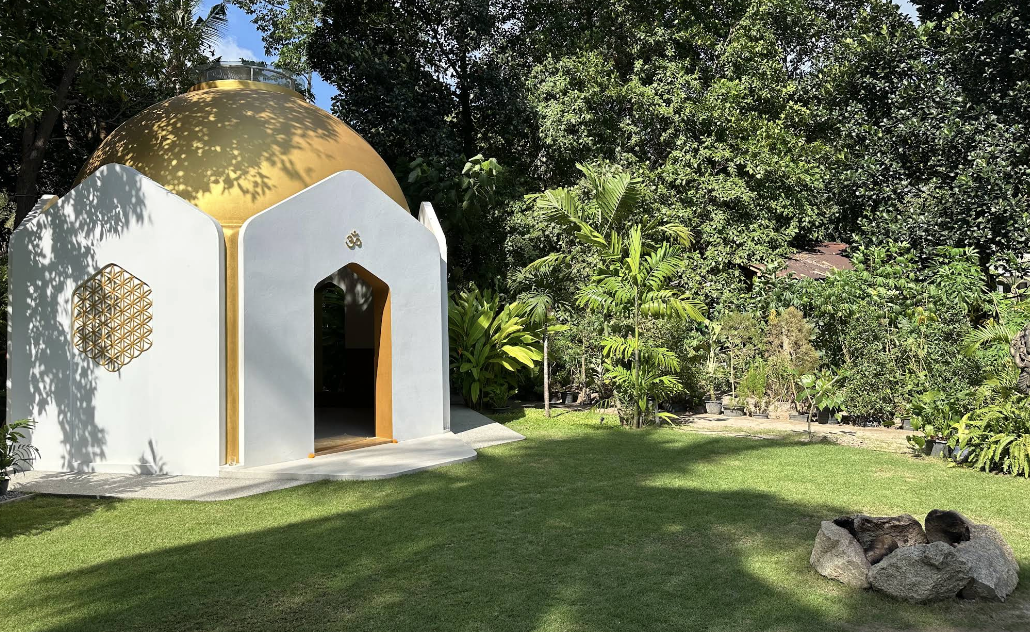
After my walk, I joined my friends for dinner. We shared stories and traditions from our different cultures, blending them together in an intellectually stimulating mix of ideas and experiences—a conversation that would be difficult for people without significant international life experience to follow.
Nearby, an English and German couple from our group were playing with their toddlers. The man tossed one of the children into the air—unaware of the low roof above. The child hit her head with a loud thud. Someone at our table screamed, and the whole restaurant froze in shock. The man collapsed in horror as the mother rushed to her daughter. Thankfully, she was fine—just a minor bump—but the incident was a reminder of how quickly peace can turn to tension, even in paradise.
In the deepening twilight, we gathered again, arranging the shells and driftwood I’d collected earlier, along with some flowers that others had gathered, and some candles that someone had brought, into a small altar on the table—a ritual of gratitude and presence. It was a simple act, but it felt profound—a way of honoring the beauty around us and the divinity in the ordinary. This practice of presence and gratitude has become my prayer, especially as the world outside grows darker.
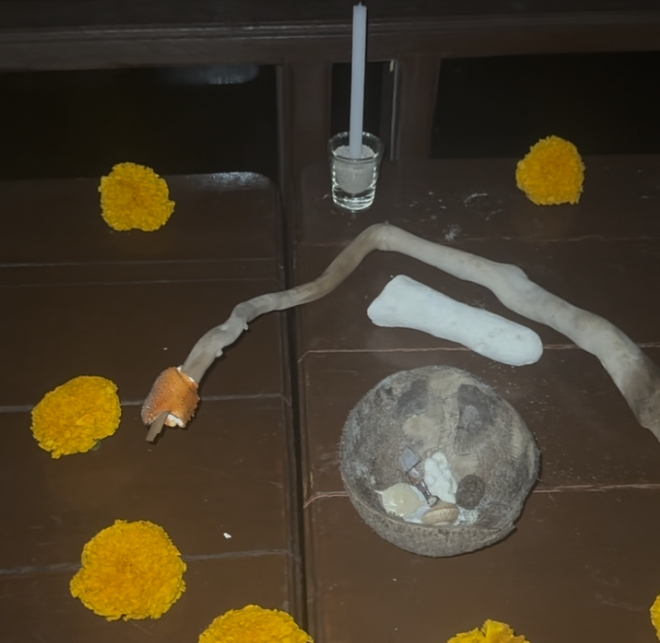
The next morning, I woke early. I made the mistake of opening my phone, only to see headlines of Tel Aviv being bombed by Iran. It felt apocalyptic. I cried, then put away my phone and wandered to a secluded beach restaurant, needing a moment of solitude. I ordered a simple bowl of Thai rice porridge with ginger and chicken, and a cup of cheap instant coffee—the only kind they had. Sitting alone, I looked out at the quiet sea, reflecting on the state of the world and my place in it. The meal was grounding, reminding me of how little we really need to feel nourished and alive.
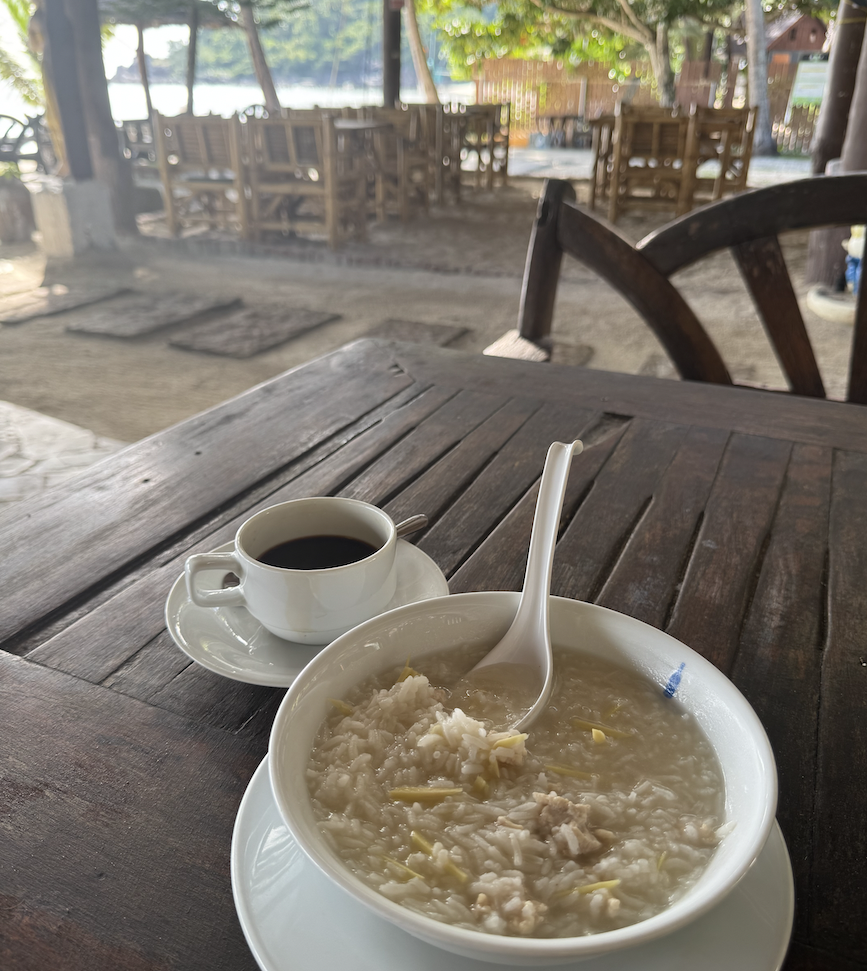
After breakfast, I returned to the group. Our Israeli friend told me, "I'm gonna dive into the news on my phone." I warned him, "It's an intense day. But dive in if you have to. At some point, you'll find out anyway." He scrolled through the headlines, then shrugged, "Oh! It's ok! It could have been worse." His resilience surprised me, especially as I still felt my stomach in knots from seeing the headlines myself. It struck me how differently we process crisis.
Before leaving the beach, our whole group went for one last swim. The water was cool and clear, and for a while, it felt like we could wash away the heaviness of the news. Floating together, we talked about our breakfast. A few of us expressed our distaste for the cheap instant coffee at the beach. One guy chimed in that he loves instant coffee. The German mother exclaimed, "That's f@#%ing gross, man!" I laughed, feeling a sense of kinship with her. It was a small but comforting reminder of shared values and tastes amid all the differences.
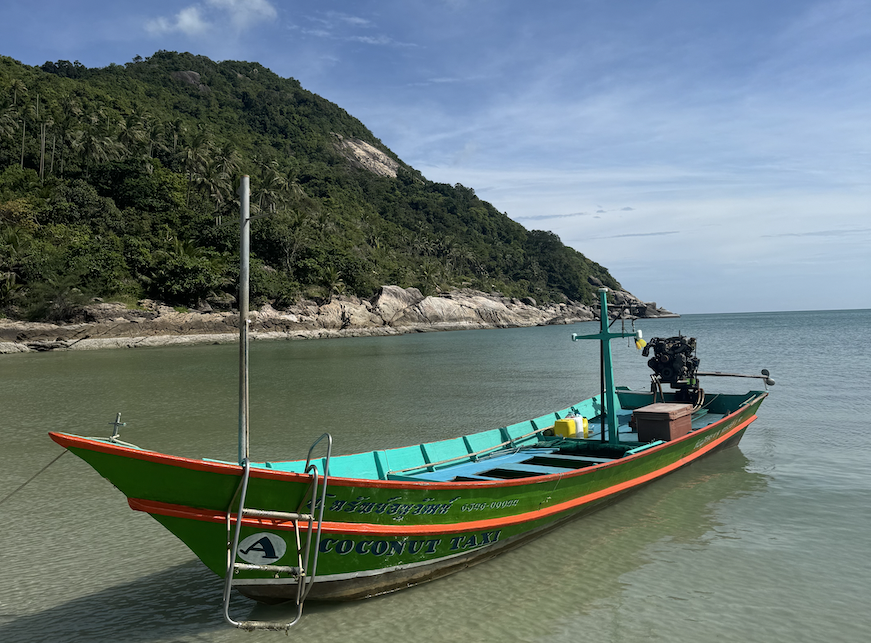
The glittering waves held my attention during our final moments at the beach as I reflected on the lessons I’ve learned in recent years: that darkness, no matter how overwhelming, can be dispelled by even the smallest light. The world may feel like it’s falling apart, but here, in this secluded corner of the world, I’ve found a light of hope—not in saving the world, but in simply being present, sharing acts of love with each other, singing together, building altars from shells, and sharing stories around a table. For now, that’s what I have, and I’m grateful.